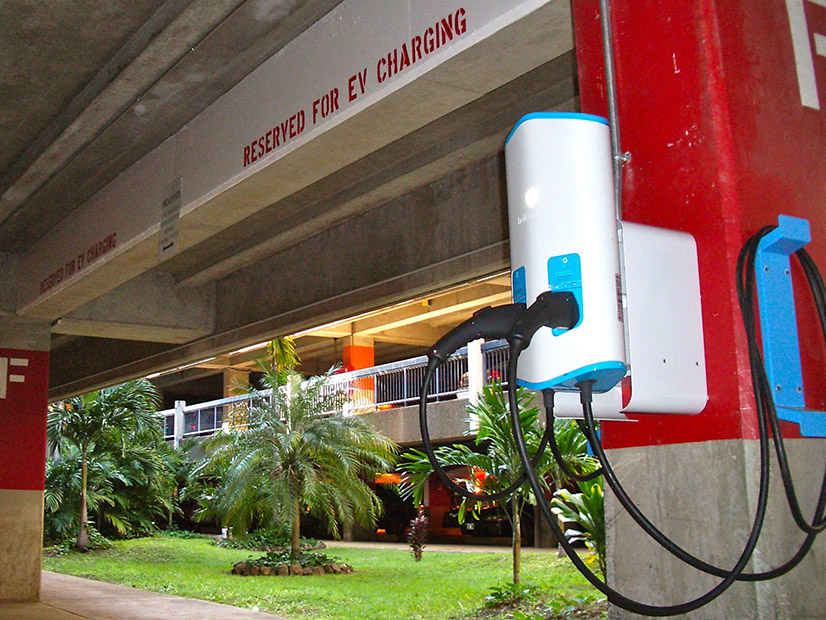
In an effort to gauge community desire for electric vehicle charging stations, Hawaiian Electric Company (HECO) last week launched Charge Up Hawaii, a website and interactive web tool asking for public input on EV charging station locations.
Using the tagline “building a network of reliable electric vehicle charging stations,” Charge Up Hawaii allows respondents to place a pin on a map where they would like to see an EV charging station and explain why that spot would be a good location. There is also a $100 giveaway for those who answer a short survey about the difficulties they face when commuting.
When looking at potential infrastructure, Charge Up Hawaii points out several considerations, from equity, to the environment, to convenience. EV charging stations can be installed in a variety of areas, including parking lots, rail stations, and even private locations such as neighborhoods with houses that do not have the space or capability to install their own private charger — or apartment buildings.
The website notes that EV charging at private locations is “critical to encouraging widespread EV adoption,” that owners of private property could benefit from rebates and tax credits to lower the installation cost, and that “a robust and reliable network of public and private charging stations is essential to building range confidence and EV accessibility for all communities.”
The website represents yet another effort by HECO and the state to change all commuter vehicles to EVs by 2045. It notes that while there are 15,000 passenger EVs registered and that the number has been steadily increasing, “charging infrastructure has been identified as one of the key elements to accelerate EV adoption.”
Newer EVs can travel a few hundred miles on a single charge, but older models may only have a range of 100 miles or less. In addition, an EV battery’s storage capacity can diminish over time just like any other rechargeable battery. This can lead to range anxiety, which the website notes as being one of the “major barriers” to EV adoption.
HECO estimates that in 2030 there will be a need for over 3,600 public charging stations. HECO has already been testing a pilot program of 25 fast charging stations across the islands.
“This webtool is a great opportunity for us to hear from our customers as we work to strategically locate EV chargers to maximize their benefit. As more and more drivers make the switch to electric vehicles, we need to ensure there are sufficient EV charging solutions to support that growth,” said Aki Marceau, the utility’s director of electrification of transportation.
Hawaii currently has 542 publicly accessible EV chargers, including 473 Level 2 chargers and 69 DC fast chargers.


